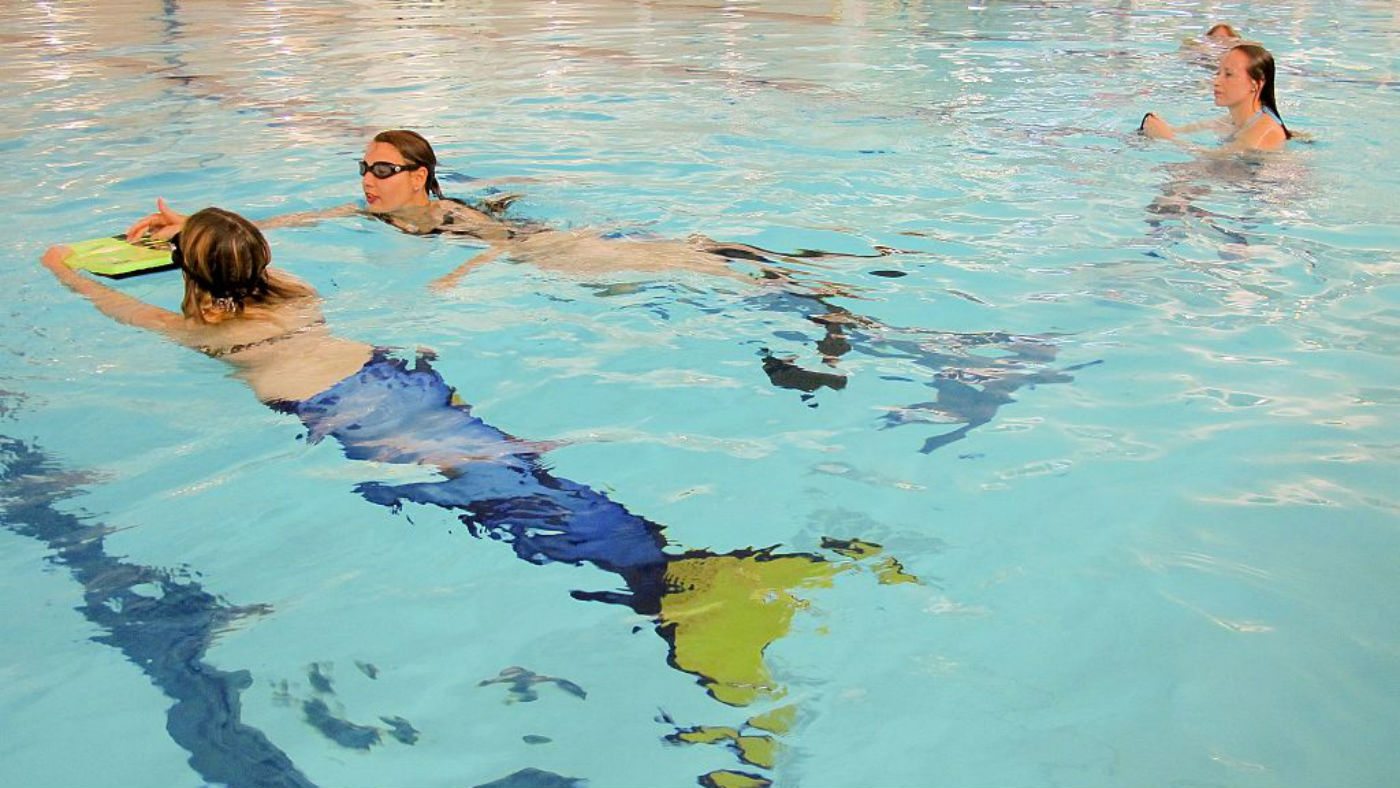How much urine does your local swimming pool contain?
Canadian study confirms squeamish swimmers' worst fears

A free daily email with the biggest news stories of the day – and the best features from TheWeek.com
You are now subscribed
Your newsletter sign-up was successful
Sneaky swimmers add around 75 litres of urine to their local swimming pool every two weeks, according to a new study.
The eye-opening findings come from Canadian researchers, who monitored two public pools for a fortnight to see just how often swimmers were indulging in the ultimate pool taboo.
Scientists from the University of Alberta tested water samples for acesulfame potassium (ACE), an artificial sweetener found in many processed foods that passes into urine, unaltered and can thus be easily detected.
The Week
Escape your echo chamber. Get the facts behind the news, plus analysis from multiple perspectives.

Sign up for The Week's Free Newsletters
From our morning news briefing to a weekly Good News Newsletter, get the best of The Week delivered directly to your inbox.
From our morning news briefing to a weekly Good News Newsletter, get the best of The Week delivered directly to your inbox.
One pool, which was one-third the size of an Olympic pool, accumulated 75 litres of urine over two weeks – "enough to fill a medium-sized dustbin", says The Guardian. A smaller pool was found to contain around 30 litres of urine.
The good news for squeamish swimmers, however, is that urine still made up less than 0.01 per cent of the water.
Chemist Xing-Fang Li's team also tested hot tubs and found evidence that even more people were relieving themselves in the jacuzzi. The most contaminated hot tub showed more than three times the concentration of ACE than the worst swimming pool.
"Apart from being gross, that's also a potential health hazard," NPR reports. Urine and sweat react with the chlorine used to purify pool water, creating the distinctive "pool smell". The reaction also creates nitrosamines, a chemical compound linked to cancer, although there is currently not enough evidence to make a definitive link between swimming in public pools and an increased cancer risk.
A free daily email with the biggest news stories of the day – and the best features from TheWeek.com
Li told NPR that he himself is a keen swimmer. He hopes the study will encourage better hygiene practices rather than put people off the pool.
"This isn't to scare people, but hopefully they can prevent the problem," said Li. The chemist is urging swimmers to shower before entering the water and to get out of the pool to answer nature's call.
In a 2012 survey cited by the Guardian, 19 per cent of adults anonymously admitted to urinating in a swimming pool on at least one occasion.
-
 Political cartoons for February 15
Political cartoons for February 15Cartoons Sunday's political cartoons include political ventriloquism, Europe in the middle, and more
-
 The broken water companies failing England and Wales
The broken water companies failing England and WalesExplainer With rising bills, deteriorating river health and a lack of investment, regulators face an uphill battle to stabilise the industry
-
 A thrilling foodie city in northern Japan
A thrilling foodie city in northern JapanThe Week Recommends The food scene here is ‘unspoilt’ and ‘fun’
-
 Home Office worker accused of spiking mistress’s drink with abortion drug
Home Office worker accused of spiking mistress’s drink with abortion drugSpeed Read Darren Burke had failed to convince his girlfriend to terminate pregnancy
-
 In hock to Moscow: exploring Germany’s woeful energy policy
In hock to Moscow: exploring Germany’s woeful energy policySpeed Read Don’t expect Berlin to wean itself off Russian gas any time soon
-
 Were Covid restrictions dropped too soon?
Were Covid restrictions dropped too soon?Speed Read ‘Living with Covid’ is already proving problematic – just look at the travel chaos this week
-
 Inclusive Britain: a new strategy for tackling racism in the UK
Inclusive Britain: a new strategy for tackling racism in the UKSpeed Read Government has revealed action plan setting out 74 steps that ministers will take
-
 Sandy Hook families vs. Remington: a small victory over the gunmakers
Sandy Hook families vs. Remington: a small victory over the gunmakersSpeed Read Last week the families settled a lawsuit for $73m against the manufacturer
-
 Farmers vs. walkers: the battle over ‘Britain’s green and pleasant land’
Farmers vs. walkers: the battle over ‘Britain’s green and pleasant land’Speed Read Updated Countryside Code tells farmers: ‘be nice, say hello, share the space’
-
 Motherhood: why are we putting it off?
Motherhood: why are we putting it off?Speed Read Stats show around 50% of women in England and Wales now don’t have children by 30
-
 Anti-Semitism in America: a case of double standards?
Anti-Semitism in America: a case of double standards?Speed Read Officials were strikingly reluctant to link Texas synagogue attack to anti-Semitism